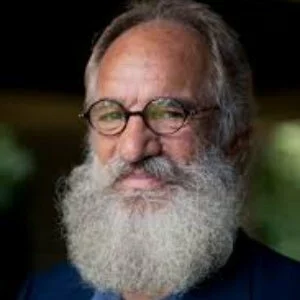I am delighted to be a part of this symposium on a book that raises both timeless and timely matters. Prof. Haidt’s desire, based on his citing of Baruch Spinoza, is to “understand” human actions. For this aim, he can only be praised. I join him in this undertaking, and it is in this spirit that I respond and offer the following reflections on The Righteous Mind.
There is much to commend in Prof. Haidt’s argument. At the heart of the project to “understand human actions” is the perplexing—and perennial—question of why people are so divided by politics and religion. Prof. Haidt, of course, is not the first to agonize over this. However, in our day he seems one of the few to be able to raise the question in public and in a publicly-accessible and gracious manner. And for possessing that kind of motivation he is to be admired.
Prof. Haidt’s over-arching burden would appear to be civil discourse, or, shall we say, the present lack thereof. As the final chapter—“Can’t We All Disagree More Constructively?”—cautions us, “grand narratives” have been constructed, at least in the American context, to both “bind and blind” us in terms of our allegiances, whether we claim to be “liberals” or “conservatives.” These terms, of course, lack precision, especially in our day when “liberals” have tended to take on a decidedly illiberal cast, as attitudes in the wider academy—where “conservatives” are barely tolerated—attest. To the fathers of the American “experiment in ordered liberty,” the concept of “liberalism” connoted something very different. Prof. Haidt, to his great credit, has resisted the more illiberal mindset, choosing to engage even social and political conservatives with grace and magnanimity. The present exchange being mirrored in this symposium, in my view, is a model—refreshing, useful, and constructive—for how not only academics but citizens in general might engage in agreement and disagreement.
There is much to applaud not only in Prof. Haidt’s burden for civil discourse but also in his reading of human nature. The theist would agree with many of his observations about the human person and human behavior, even when the “good” appearing in the book’s subtitle needs strong qualification. His caution against the idolizing of reason warrants serious reflection. This is true even when the theist responds that faith and reason conjoined are constitutive of human nature, based on our design. Further, to be applauded is Prof. Haidt’s contention that there is more to morality than mere “fairness” and the prevention of harm. The virtues of loyalty, authority (properly understood), and sanctity surely lie at the heart of moral reality. All people intuit that the “Golden Rule”—treating others as you yourself wish to be treated—and its negative corollary—not treating others as you would not wish to be treated—are enduring and universal. Not just we contemporaries but the ancients taught and believed this moral truth, as both Plato and Jesus remind us.
“Golden Rule” ethics, of course, brings us to the heart of important disagreements, both in the wider culture and, more narrowly, in the present symposium. If we get human nature wrong, we get everything wrong in life. Hence, Prof. Haidt’s concerns about those two contentious realms—politics and religion—are legitimate and need probing. These concerns, it needs reiterating, are perennial, even when they take on a more urgent cast in the present.
Before commenting on the two key chapters of the book (chs. 7 and 11)—“The Moral Foundations of Politics” and “Religion Is a Team Sport”—permit me to say that I do not aspire to some form of detachment that has some pretense of supposed objectivity or neutrality. There exists no such thing as moral neutrality. Everyone Not just we contemporaries but the ancients taught and believed this moral truth, as both Plato and Jesus remind us. proceeds on certain assumptions about ultimate reality, and these assumptions are fundamentally moral in nature. This alone may help to explain why politics and religion are matters of perennial debate and controversy. Behind the political “grand narratives” of which Prof. Haidt speaks stand metaphysical “grand narratives” that are propped up by certain assumptions about the world, human nature, and society—i.e., what Thomas Sowell has called “constrained” and “unconstrained” visions.Thomas Sowell, A Conflict of Visions: Ideological Origins of Political Struggles (rev. ed.; New York: Basic Books, 2007). At their base, these “narratives” are founded on certain moral assumptions, whether spoken or unspoken. In this light, then, my response to Prof. Haidt concerns my basic assumptions that underpin four interrelated areas: the cosmos, human nature, morality, and the social-political order.
From the standpoint of human history, I would maintain that the Judeo-Christian tradition has been the most significant factor in the development of Western civilization. And the reason for this significance is none other than its impact on our understanding of the four above-mentioned spheres of reality—the cosmos, human nature, social-political arrangements, and a concept of the moral good. Secularism’s and metaphysical materialism’s capacity for barbarity and murder in the modern era, and notably in the twentieth century (the bloodiest on human record), is absolutely stunning. Why? Historical calculations coming from sources as diverse as Stéphane Courtois (The Black Book of Communism: Crimes, Terror, Repression) and Robert Conquest (Reflections on a Ravaged Century) place the number of human offerings for political and religious reasons in “the bloodiest century”From the standpoint of human history, I would maintain that the Judeo-Christian tradition has been the most significant factor in the development of Western civilization. at anywhere between 100 million and 170 million, dwarfing the breathtaking though short-lived proportions of Nazism by worlds. But why such levels of inhumanity? Surely, notwithstanding Prof. Haidt’s reasoned appeal to psychology and the evolutionary model, the empirical evidence of moral evolution is simply lacking; in fact, the evidence is demonstrably against the supposition of evolution.
Moreover, I would argue that much of modernity, secularism, and philosophical materialism is parasitic in nature. That is, even for those who turn from or reject Christian—or Judeo-Christian—conviction, much of supposed modern “liberation” and “progress” had its origins in Christian belief. After all, “post-Christian” unbelief in the twenty-first century, for good or for ill, remains post-Christian.
But more needs to be said. With the removal of the transcendent—in any culture—it becomes exceedingly difficult, if not impossible, to name “good” and “evil.” Where, alas, do good and evil originate? Does a society need these notions to flourish? Can a society even exist without them? If they do disappear, what happens to that particular culture? Have we—and has Prof. Haidt—reflected on that frightening possibility? Alas, where “good” and “evil” disappear, agreement and civil discourse themselves become evil.
Nature, it must be conceded, admits of no moral principles. Its only principle, according to evolutionary thinking, is anything but gentle or just. And we saw the fruits of “survival of the fittest” earlier in the last century when, in Europe and North America, it was applied to the socialist eugenics movement, from which Nazism later would spring. Contrary to the materialist assumptions of Prof. Haidt and the evolutionary model, sanctity, self-sacrifice, empathy, justice and punishment, patience, and charity do not evolve naturally or materially. Like wisdom, they are born of adversity, even suffering, and transcend biology and science; they must be learned and then affirmed. Nor are these virtues explicable on the basis of brain science; and if they are, then we cannot punish criminals who lack an “evolving moral sense” or have an underdeveloped ventromedial prefrontal cortex.
These virtues, as it turns out, are the very hallmarks of the Judeo-Christian tradition, which alone insists that knowledge carries moral responsibility (a non-biological insight).I invite the reader—and Prof. Haidt—to read Vincent Carroll and David Shiflett, Christianity on Trial: Arguments against Anti-Religious Bigotry (New York: Encounter Books, 2002) and reflect on Christianity’s distinctive civilizing character. Is natural selection in fact “the ultimate explanation for our existence,” as Richard Dawkins and other tireless tractarians of the evolutionary model insist? To be clear, the matter of existence does not reduce to the process by which life appeared, only how it is possible that anything exists at all ex nihilo. Neither Darwin nor metaphysical materialists nor neuroscientists nor moral or social psychologists have addressed this. Nor can they.
Permit me to illustrate Christianity’s humanizing effect on diverse cultures with a practical example: namely, its understanding of war and the use of coercive force. The “just war” tradition, even when it has certain non-Christian precedents, was incubated and refined chiefly within the Christian moral tradition. This source of moral wisdom remains part of a 2000-year long conversation in our own cultural heritage on qualifying whether or not to intervene with force (ius ad bellum), how to proceed justly in the implementation of that force (ius in bello), and why post-conflict attempts to establish a justly-ordered peace (ius post bellum) are so important. (Whether or not the wisdom of this tradition has always—or even usually—been followed is a different question entirely.) The tradition itself is anchored in universal moral principles (consistent with the natural law) and not “tribal” or cultural “cooperation.” Informed by natural-law and “Golden Rule”-ethics, which in turn witness to our shared humanity and hence a shared morality, the “just war” idea witnesses to the fact of our common humanity, in the same way that “criminal justice,” regardless of its cultural context, witnesses to certain moral realities that apply equally to all human beings, based on their shared dignity. If justice and moral principle are fluid, then one man’s mugging is simply another man’s good time.
With the disappearance of transcendence, anything becomes possible, since there no longer remain “good” and “evil.”
To conclude: if there exists no determinate/transcendent/divine standard which ultimately must guide human freedom and “choice” (that idol of our time), then it is guaranteed that human nature will be re-fashioned. And recent history informs us that these attempts at “re-fashioning” are by no means benign. With the disappearance of transcendence, anything becomes possible, since there no longer remain “good” and “evil.” In that case, the basis of all human virtue—charity, the Golden Rule, self-sacrifice, justice, humility, and hope—is lost. Therewith we descend into inhumanity.








Comments
Be the first one to make a comment!